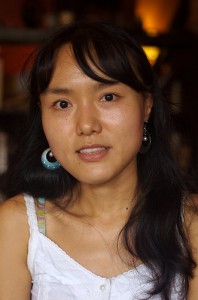Kim Hye-jin says some interesting things in an interview in TimeOut Shangai. She (author of Jia: A Novel of North Korea ) begins with something that intially seems commonplace:
It’s true that Korean writers are little known in other countries, though if you want to understand Korean history through literature, read the great works by Cho Jung-rae and Park Kyung-ri. I hope that the way Korea promotes its entertainment industry overseas is replicated to promote other aspects of culture. When Korean television dramas and movies come out, their popularity overseas means that versions with English or Chinese subtitles come out. I hope books will one day get the same treatment.
But the mention of “subtitles” suggests she is willing to accept some simplification in this process. This is a bit different from the “culturally pure” approach to translation which is that each translation should be exactly ‘correct’ (whatever that means in the literal vs. artistic range in which translations reside). As if to erase any doubt, Kim goes on to say:
I am not afraid that the original meaning of my novels will be lost once they are translated into other languages. Sometimes the translated novels are better than the original. I am, though, mentally prepared for the bad ones. I think that it’s one’s luck to meet a good translator.
This is radical on several levels. First, Kim is not only admitting that translation is in some way “re-writing,” but she is accepting it and even suggesting that it can lead to improvement. In no way is she saying it can’t also be a bad thing, but this is a radically different approach to translation.
Kim may be the first author to accept what some Korean chefs have accepted (not all, there are many strict food-constructionists like the wonderfully amusing “Ask A Korean”): that in some cases fusion products are far better suited for success in a Target Culture than products obsessively translated and inspected for purity.
From a personal standpoint, I would note that The Translator has been making this kind of argument for years, but the arguemnt finds little support in the traditional (read, “paid!”) halls of current Korean literature translation.



